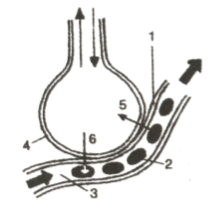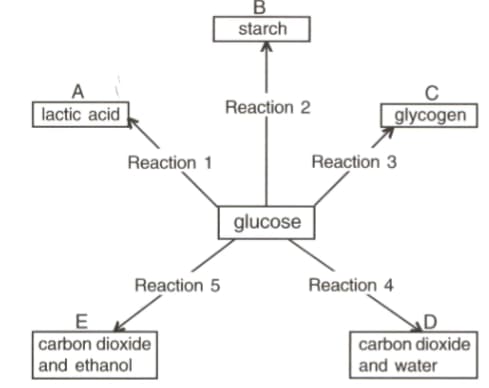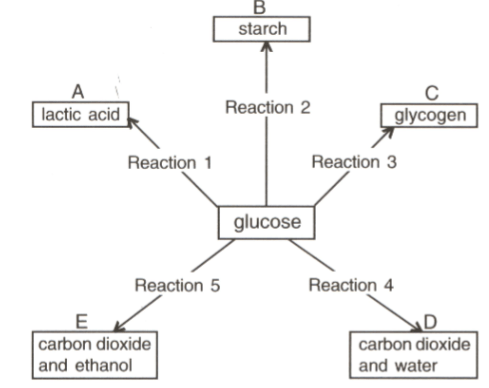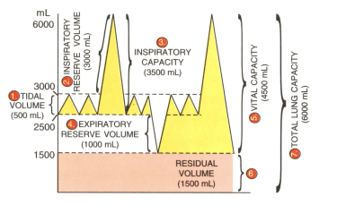H S Vishnoi Solutions for Exercise 5: REVIEW QUESTIONS
H S Vishnoi Biology Solutions for Exercise - H S Vishnoi Solutions for Exercise 5: REVIEW QUESTIONS
Attempt the practice questions from Exercise 5: REVIEW QUESTIONS with hints and solutions to strengthen your understanding. Concise Biology Part - 1 solutions are prepared by Experienced Embibe Experts.
Questions from H S Vishnoi Solutions for Exercise 5: REVIEW QUESTIONS with Hints & Solutions
Name the body structure which helps to transport oxygen to the body cells.
Name the body structure which protects the lungs from mechanical injury.
What are the functions of abdominal muscles?
Given below is a diagrammatic sketch of a part in human lungs.
a. Name the parts numbered 1-4.
b. What do the arrows 5 and 6 indicate?

Given below is the overall chemical reaction of a certain process.
C6H12O6---------> Lactic acid+ 2ATP+ Heat energy
a. Name the process.
b. Is this reaction applicable to animals or to plants or to both animals and plants.
c. Name the tissue in which this reaction may occur.
Given below the chemical reactions (1 to 5) involving glucose and five other chemical products (A to E).

Write the reaction number of the following:-
Anaerobic respiration in plants_____
End products of aerobic respiration_____
Reaction occurring in the liver_____
Anaerobic respiration in animals_____
Storage in the liver_____
Given below the chemical reactions (1 to 5) involving glucose and five other chemical products (A to E).

Which reactions (1-5) in the above correspond to the following? (write the corresponding number of reaction next to them)
Aerobic reaction _____
Changes taking place in the liver_____
Anaerobic respiration in yeast_____
Changes taking place in the plants' storage organ e.g.Potato_____
Anaerobic respiration in animals_____
The volume of air in the lungs and the rate at which it is exchanged during inspiration and expiration was measured.
The following diagram shows a group of lung volume and capacities:

Study the diagram carefully and explain briefly the following:
(a) Tidal volume
(b) Inspiratory reserve volume
(c) Expiratory reserve volume
(d) Vital capacity
(e) Residual volume
